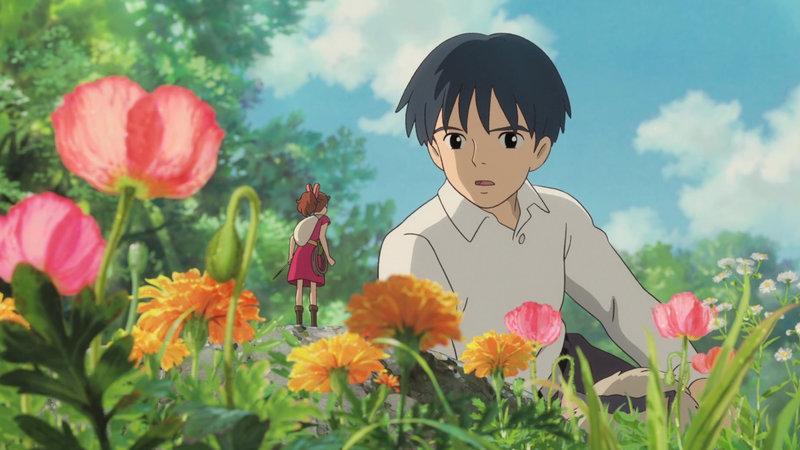An enchanting adaptation of Brits children’s classic The Borrowers from the animators of Ponyo. “Simply told, beautifully animated… speaks straight to the heart and imagination of the child in all of us.” — Japan Times

Enchanting... has the grace, heart and ravishing visual style of Ghibli at its best.
Screened as part of NZIFF 2011
Arrietty 2010
Karigurashi no Arrietty
Based on a classic of British children’s fantasy, Mary Norton’s 1952 novel The Borrowers, this animated feature is the latest source of delight from the estimable Studio Ghibli. It is directed by Yonebayashi Hiromasa, a longstanding Ghibli animator responsible for some of the breathtaking work on Ponyo.
It tells of the friendship between Sho, a young boy recuperating at his elderly aunt’s house in the country, and Arrietty, a little girl as big as your thumb who lives with her family under the floorboards. Arrietty accompanies her father Pod on ‘Borrower’ expeditions into the house to fetch supplies that the ‘human beans’ will never miss. Though a cat can look mighty fearsome when you’re four inches high, Arrietty’s excitements don’t pack the dark, animist charge of the Miyazaki films. But its exquisitely rendered design, the painterly botanical details of the garden, and the ageless story-book quality of the country house are all the proof anyone could wish for that the master lives on in his successor. — BG
“It is a simply told, beautifully animated delight that, like the best Ghibli films, speaks straight to the heart and imagination of the child in all of us… Yonebayashi and his team have created a world that is both gorgeously detailed and thrillingly realized from the perspective of its miniature protagonists. As Arrietty climbs vines to the roof, plunges on a thread from a kitchen table or performs other feats of derring-do, we have the heart-in-the-throat feeling of not only admiring her pluck, but being in her shoes.” — Mark Schilling, Japan Times